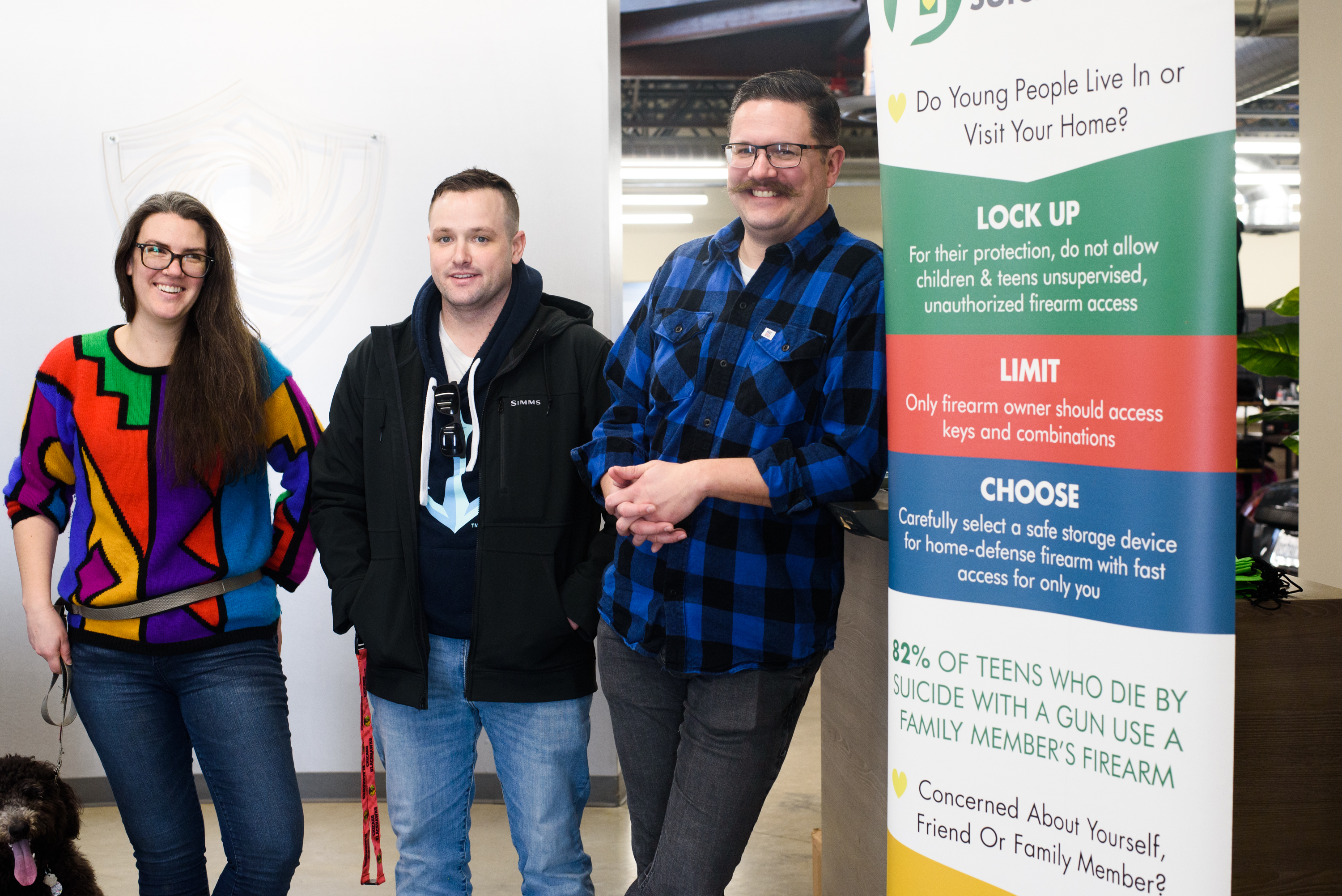
Saving Lives Through Immediate Action to Prevent Suicide
We lost more than 47,000 lives to suicide in 2017. Nationally, more than half of all suicides involve a firearm, and approximately a fifth of all suicides and most suicide attempts involve medications. The Safer Homes, Suicide Aware campaign raises public awareness of suicide and offers people immediate steps they can take to make their homes safer. Research has shown that thoughts about suicide do pass, thus a temporary barrier between a person in crisis and the chosen means of suicide can be lifesaving.
The Safer Homes, Suicide Aware campaign originated in 2015 with a cold call from Forefront Suicide Prevention’s Center Director Jennifer Stuber to the National Rifle Association to ask how its leaders view firearm-related suicide. In the ensuing conversation, Dr. Stuber learned two vital pieces of information: NRA members also suffer the loss of friends and family to firearm-related suicide, and that they, like much of the American public, mistakenly believe that nothing can be done to prevent suicide.
In 2016, the State Legislature created the Safer Homes, Suicide Aware Campaign with bipartisan support. More than 45 partners with diverse perspectives are focused on creating messaging and implementing strategies where there is common ground.
Reaching Diverse Washington Communities:
Outreach at gun shows and community events is at the core of the campaign. Men in the middle years—particularly veterans and first responders—are at high risk of suicide. Safer Homes, Suicide Aware connects with these populations through the brief, innovative Safer Homes intervention providing education and free firearm and medication locking devices at the following locations:
- Gun shows
- Veterans group meetings
- Community events, including parent education
Additional Elements of the Campaign Include:
- A comprehensive website with suicide prevention videos, online trainings and other resources
- Safer Homes materials distributed by firearm retailers and health care organizations
- A one-hour online training course for firearm retailers and gun safety instructors
- A six-hour training course for medical professionals and a three-hour training course for pharmacists
- Partnerships with manufacturers of locking devices for firearms and medication
- Are you a Pharmacy Professional?
- You dispense powerful medications that are intended to heal, but are sometimes used in overdose or suicide. Pharmacy professionals can play an important role in preventing suicide, overdoses and suicide attempts – creating safer homes. Washington state-licensed pharmacists are required to take a three-hour training which is approved by the Washington Department of Health. Learn more about our Suicide Awareness & Referral Training here.
- Are you a Firearms Retailer / Instructor?
- You often know when things aren’t right with someone. Be aware, a new gun could be used for suicide. The skills learned in this training (free to Washington state firearm retailers and instructors) will help those in the firearms community to take actions that will help to save lives. To take the training or learn more, contact the Safer Homes Coalition here.
- Are you a Training Provider for Mental Health and Medical Professionals?
- Training providers play a vital role in reducing suicide by teaching the universal Safer Homes message. Restricting lethal means, or removing the danger, is an effective way to reduce suicide. Health care professionals, education professionals, human resource professionals, coaches, community members are among the many appropriate audiences for this life-saving information. This Safer Homes module includes information on locking & limiting both medications & firearms, and can be downloaded for your use at no cost here.
- Are you a Medical Provider?
- Designed for and by medical professionals, the 6-hour version of All Patients Safe meets Washington state’s licensure requirements (RCW 43.70.442) for health care providers to assist in reducing suicide.